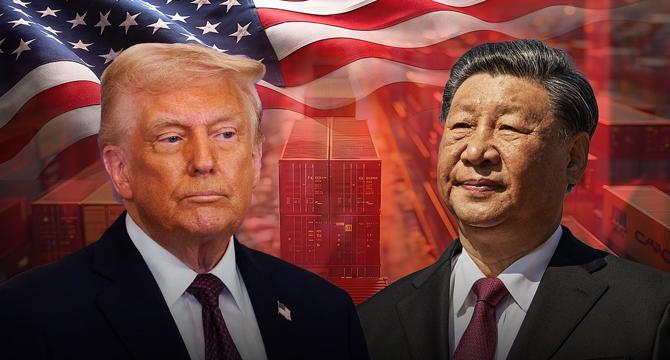Bloomberg Quint
1w
58

Image Credit: Bloomberg Quint
Trump-Xi Truce Appears Elusive As China Prepares To Dig In
- Amid the escalating trade war, prospects for talks between President Trump and President Xi Jinping appear remote as both countries continue to impose steep tariffs on each other's goods.
- China has matched US tariff hikes, indicating a reluctance to negotiate with the Trump administration, with President Xi Jinping showing a willingness to endure economic and political hardships.
- Trump has expressed optimism about future talks with Xi, emphasizing a desire for a mutually beneficial deal, but the lack of consistent demands from the US complicates negotiations.
- Both sides have refrained from engaging in meaningful dialogue, with the Trump administration's erratic tariff messaging further clouding prospects for negotiation.
- Chinese scholars view US-China relations as a 'negative sum game' where both sides aim to suffer less, highlighting the competitive nature of the ongoing trade dispute.
- China is prepared to enhance its resilience against economic pressure by exploring stimulus measures, strengthening ties with other trading partners, and utilizing tools like the weakening of the yuan.
- Amid uncertainties and escalating tensions, paths back to the negotiating table for President Xi Jinping include exploring talks on specific issues like fentanyl and potential rewards for progress.
- The trade war has raised the possibility of a US-China decoupling, prompting China to focus on building a resilient industrial system to mitigate the impact of the ongoing dispute.
- Beijing's strategic approaches involve diversifying its trade relationships, imposing restrictions on Hollywood imports, and leveraging its economic leverage to exert pressure on the US economy.
- Overall, the future of US-China trade talks remains uncertain as both nations navigate through escalating tensions and economic ramifications of the trade dispute.
Read Full Article
3 Likes
For uninterrupted reading, download the app